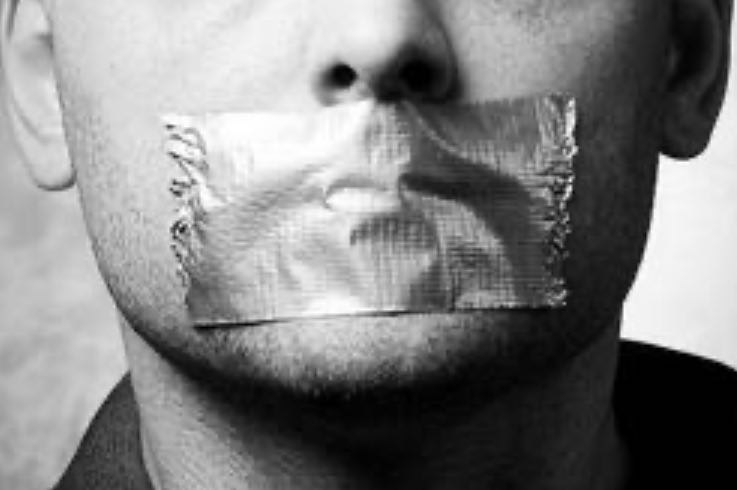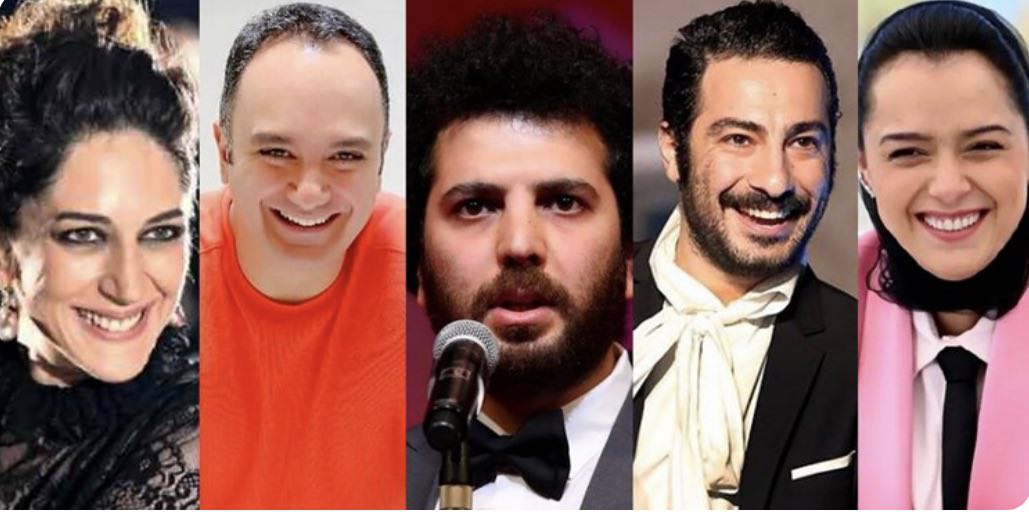Celebrities: The New Threat
Celebrities: The New Threat According to Iran Gate, it seems it’s now the turn of celebrities to be silenced. Silencing is a new phenomenon for more oppression and censorship by the Iranian political system, perhaps to control the turbulent atmosphere in society.
Now, four months after the start of nationwide protests in Iran, members of the Islamic Consultative Assembly are drafting a plan under which celebrities who spread unofficial news will be sentenced to imprisonment and fines, according to the Etemad newspaper. The Parliament’s Judicial Commission intends to
add a clause to Article 512 of the Islamic Penal Code, which, if approved, would sentence famous and influential individuals on social networks to 10 to 15 years in prison and a fine of 36 to 55 million tomans if they publish news that officials have not yet commented on.
According to Article 512 of the Islamic Penal Code, anyone who incites or provokes people to war and killing each other with the intent of disrupting national security shall be sentenced to one to five years in prison.
Now, according to the repeated Article 512 that the Islamic Consultative Assembly is trying to add to the fifth book of the Islamic Penal Code, any person with a social, political, familial, scientific, cultural, or military position in the community who, in real or virtual space, makes false statements about matters that require official comment and have not yet been officially declared, will be sentenced to both imprisonment and fines if not considered an example of corruption on earth.
Mousa Ghazanfarabadi, the head of the Parliament’s Judicial Commission, has stated that Article 512 is under review and has not yet reached a final conclusion.
Mr. Ghazanfarabadi cited the death of Mahsa Amini due to the beating by morality police officers as a lie and said that individuals who comment or analyze based on lies and rumors will be subject to the new plan.

More than four months after the widespread protests that began with the death of Mahsa Amini in the custody of the morality police, the official authorities of the Islamic Republic have consistently insisted that the protesting people were incited by individuals and entities, including celebrities and foreign media, to take to the streets.
In mid-November, at the height of the protests, 227 members of the current Parliament called for the execution of protesters. The news of the new plan’s drafting has been met with reactions from social media users, many of whom and experts have described this action as against the law and aimed at further restricting freedom of expression in society.
In this regard, Rasoul Khadem, the former president of the Iranian Wrestling Federation, also wrote in a post on his Instagram account on Saturday, January 28, that not allowing anyone to speak about public and societal issues before officials do is the ultimate dishonesty and betrayal to the people who have been deprived of their public funds and are told to remain silent until the officials report as they wish, and perhaps they may not even deem it appropriate to say anything at all.
He went on to refer to the members of the Islamic Consultative Assembly as a group that listens to the demands and commands of higher authorities rather than the voice of the people. After the start of nationwide protests in Iran following the killing of Mahsa Amini, a significant number of well-known figures, including artists and athletes, reacted to the ongoing events and supported the people. In response to this widespread wave, some of them were summoned, interrogated, threatened, detained, banned from their profession, and prohibited from leaving the country.

